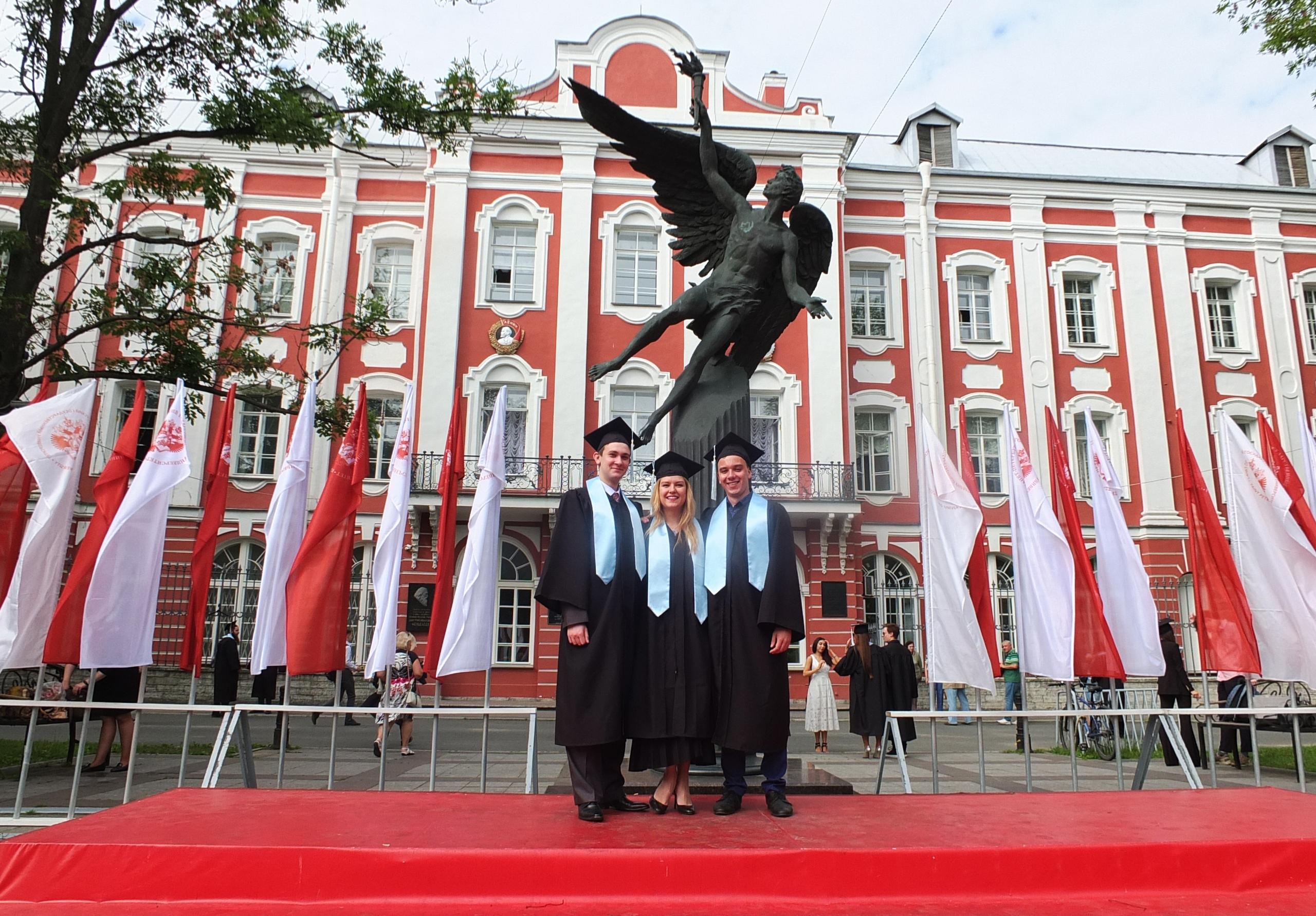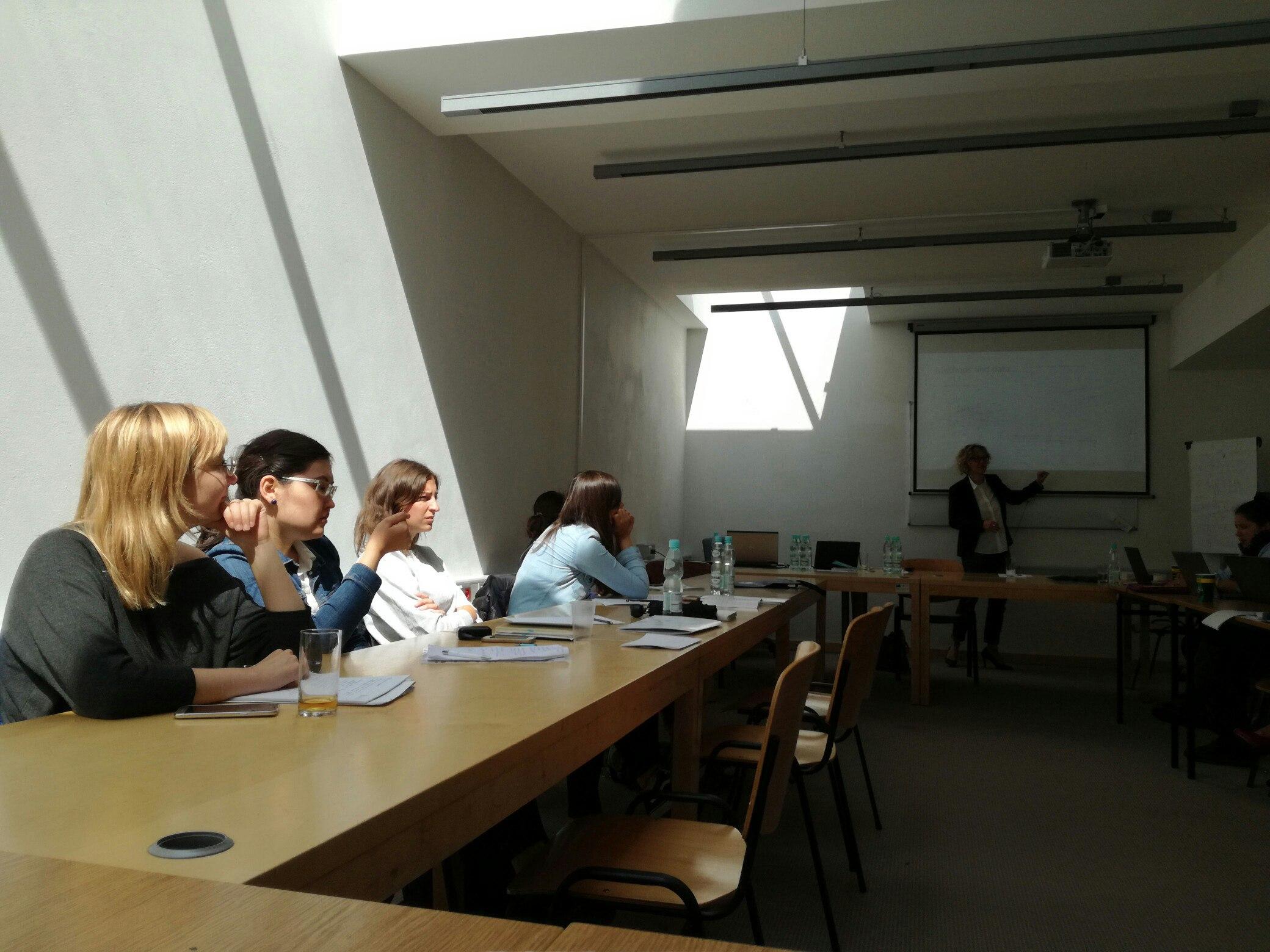
Nowadays, it is very easy to move around the world and study at different universities. It is not only a great way to spend time but it is also important as there are many differences between educational systems. Only through experience in studying abroad can you get comprehensive and balanced knowledge and skills. In my opinion, it is especially crucial to talk about social science, which can be influenced by national propaganda and biases.
I was lucky to have a chance to study at three universities. Before CEU, I got my bachelor's degree in international relations from St. Petersburg State University in Russia. During that time I went on an exchange program at the University of Bologna in Italy. Based on my impressions, I chose the most important differences between CEU, the Russian and the Italian systems - I do not distinguish them, as for my criteria their differences are not significant.

The First Difference: Theory vs. Facts
At the universities in St. Petersburg and Bologna, great emphasis was placed on the study of facts, history, socio-economic and cultural context. Any puzzle was viewed through the prism of regional studies. In the beginning, we had to choose a region in which we were supposed to gradually build our expertise by learning the language, looking at the news daily, etc.
The approach is different at CEU. The main focus here is on theory and methodology. It is difficult for me to say whether this difference occurs because previously I studied international relations and am now in the political science program, or because of the difference in educational levels between undergraduate and graduate programs. However, I believe that these differences are due to the features of an American education rather than anything else.
Emphasis on theory and methods is not random. CEU expects its students to write their research following a very strict structure. First, you need to choose a puzzle (or question) to research, and then develop a theory that offers a solution to the problem. Finally, quantitative or qualitative methods are used to check whether your theory is correct.
This feature has its own consequences- one of which is favoring the universal approach to science. The idea is that if you have a good theory, supported by a suitable method, you can explain everything that happens in the world. It seems like magic recipes that might describe how many grams of, for example, institutional transparency, civil society, and GDP growth are needed for a successful democracy. Usually, the socioeconomic, cultural, and historical contexts do not play a big role in this structure.
Sometimes I am worried about this approach. In the end, there are such things as path dependency, public opinion, which are determined by traditions and values. Moreover, different cultures act in different ways in the same circumstances. But at the same time, I was not completely satisfied with the courses in Russia and Italy, which were based only on facts. After completing such an education, you can turn into a human copy of Wikipedia, but not into a scientist or expert. Without theory and methods, it is very difficult to construct explanations and predictions. And the statement that each situation is unique and cannot be explored through the experience of others makes education seem almost useless.
The Second Difference: Papers vs. Exams
It is worth noting that papers at CEU are not similar to those I wrote before. I used to just re-state the literature, current legislature, history and news. Sometimes I managed to combine all this information in an interesting way, and thus made my personal contribution to knowledge. But in most cases, I did not make any "discoveries." At CEU, papers like this are simply not acceptable. Rather, it is encouraged to use statistics, or conduct surveys, interviews or experiments, or use sophisticated, innovative methods. This requirement helps to avoid subjectivity and to obtain empirical evidence for the hypotheses.
But what type of assessment is better? Writing research papers can be an exciting process and at times feels like scuba diving. I get into a topic, research it, and then create a new piece of knowledge. This is definitely a better exercise for developing cognitive skills compared to learning and reproducing facts. Of course, it is important to have a good memory, but when the majority of academic activities are dedicated to this skill, I have concerns about my learning outcomes.
However, another kind of problem arises when it comes to papers. Often, final papers have little connection (if any) with the materials of the course itself. In addition, the process of writing papers seems less stressful than exams only at first glance. In fact, it is almost never clear for students what they should write about and how to write it. That is why those two or three weeks that we spend writing papers seem like an endless nightmare. Finally, for those who do not like to write in general or who do not have a good English vocabulary, there are additional problems and challenges.

The Third Difference: Discussions vs. Lectures
It was a big surprise for me that there are practically no lectures at CEU. All classes are designed as seminars. Instead of listening to the lectures and studying the textbooks, you get tons of academic papers to read. All the knowledge comes from these articles. The class then serves as a platform for discussion, especially if the readings were contradictory. Sometimes this is complemented with the professor's comments or a mini-lecture, but, still, the emphasis is on previously assigned readings. There are a number of advantages here: you don't fall asleep while trying to follow the monotonous voice of the lecturer, you can control the pace of reading and come back to things that you did not understand, you can significantly improve your knowledge of English and speed reading, and finally, discussions develop critical thinking.
But I see some disadvantages too. Ironically, the most active participants in discussions are not always the smartest ones. They take all the time for themselves, but the class as a whole does not benefit from this. In addition, the great value of lectures is that they save you significant time and provide information in a compressed form, ready for "absorption and assimilation." When you have to read articles, it takes a lot of time and, eventually, you get lost in a variety of facts and arguments. The last drawback is that if you did not have time to read, or if you did not understand the readings, then there is literally nothing for you to do in the class.
In conclusion, in my opinion, there are no ideal strategies for learning. Everything has its strengths and weaknesses, and only by maintaining a healthy balance is it possible to acquire a meaningful education.
By  Polina Vershinina, Alumni Scholarship Recipient student in the Department of Political Science at Central European University
Polina Vershinina, Alumni Scholarship Recipient student in the Department of Political Science at Central European University